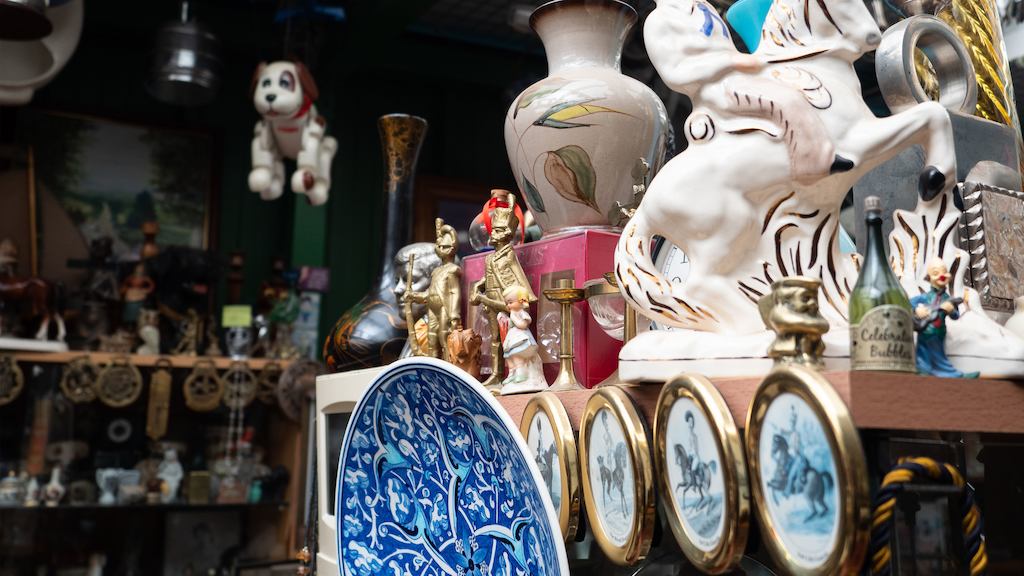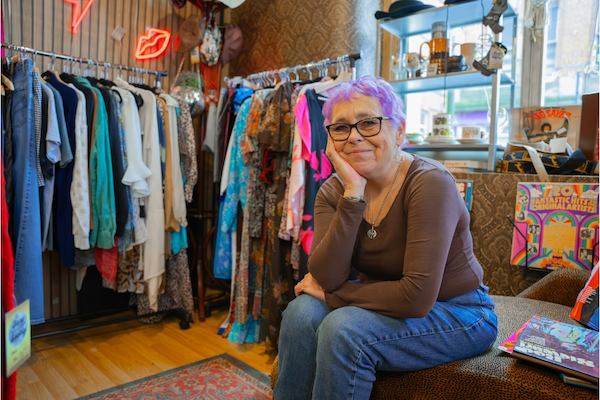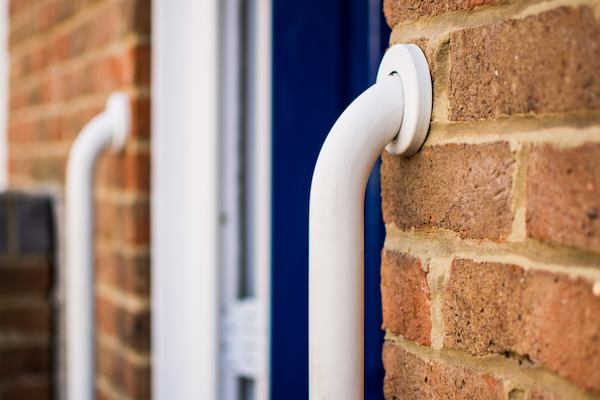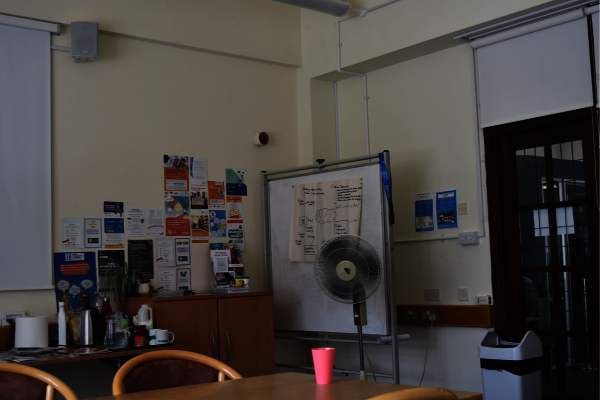Michelle's voice

Michelle, in her 60s, reflects on her time spent in America where she was inspired to become more vocal by the Black community before coming back to the UK to take up higher education opportunities and raise her children.
My dad was always one for telling stories, and used to tell this one over and over. He grew up in St. Kitts with his mum, and was the oldest of four siblings. When he started elementary school, he went wearing shoes. But as more children came along his mother could no longer afford shoes for him, so then he’d wear those Kung Fu styled slippers. When the next child came along he started going to school in flip flops. And it got to the stage where he was eventually going to school barefoot. But Dad loved school. He was very smart, particularly at Maths. He wanted to go on to high school, and his headmaster had said he would be able to get a scholarship. Dad was so excited about this and he told his mother – but his mother said he was needed at home to help with the chores, and so he couldn’t go to high school. This was a big disappointment for him. But he was very close to his grandmother, and always used to tell us how one day she took him to this piece of land – he didn’t know how big it was but you could stand on one side and not know where the other end was. And he stood on this house as a six or seven-year-old, and thought, ‘I want to build a house on a piece of land like this.’
My father always encouraged us when it came to education and ambition. Growing up in the UK in the 60s, 70s, it was a turbulent time for African Caribbeans and the Windrush generation. At my school there was an ethos for excellence and the friends that I had around me were all striving for the best – maybe striving to fulfill their parents’ aspirations for them, at least that’s what I was doing. We were encouraged by our parents to aim for university. But for some of us, the culture among some of the teachers was not about that. I only came to fully recognise the value of these things after I left school, and looking back I felt that I was probably not encouraged enough at school to go on to higher education.
I went to work at the age of 18 – but my parents still had aspirations for me, and my mum and dad decided to emigrate to the US. For a short time, I attended a college in Brooklyn. It was very different to my school in London because the Black community in the college was very political, very vocal. This vocal way of being was a new awakening for me. I met someone there, we got together and we had a child. My pregnancy was a big disappointment to my father, especially because of his high hopes for me.
The area we lived in was very close to the college but at the end of our block there was an apartment building, and I used to see a group of African American girls sitting out the front in the summer with their babies, doing their hair and chatting. In those days we’d wear those big rollers in our straightened, newly washed hair; now the fashion is to wear shower caps. And I remember saying to myself, I will not end up like that. So I attended the college for a while after I had my daughter, sometimes I would take the baby into the class with me because there was no one to babysit. I was just determined that I was not gonna end up in that fate, to be sitting on the front stoop claiming my welfare check and plaiting my baby’s hair. That was not for me.
I turned 60 this year and at my 50th birthday celebration I told my guests that I intended to live to 100.
I came back to the UK shortly after that to pursue a relationship – but it didn’t work out. In 1992, I was in London, working in accounting and hating it – so I decided to go back to college. I did well on the course, I was encouraged by my tutors, and I went on to do a degree. I chose the London Guildhall University. It was a time when the then Labour government was encouraging mature students and those from working class and ethnic ‘minority’ backgrounds to apply for higher education. Being able to invite my parents to my graduation was both a positive and powerful step for me – my parents always had these aspirations, and now I’d finally done it. Those four years opened up a whole new world for me – I made very good friends, we are still in touch now, we support each other with our business ventures and our lives. Life has been good.
I turned 60 this year and at my 50th birthday celebration I told my guests that I intended to live to 100. Realistically, if God spare life, I have another 20, 30 years left, and as I get older I have discovered that my needs have changed. I don’t need clothes, shoes, or stuff. What I need is help and support from my loved ones. For me, personally, God has blessed me that I don’t have financial worries, that my father and mother made sure we as a family had a legacy and as I get older I find it comforting to know that our family has left something for those coming after me. I don’t just mean materially but culturally, historically there is a legacy of age-old wisdoms passed down from generations past that we are duty bound to continue to educate the children in. We are duty bound to tell our stories as my father did.
To me these are the things that help us to age better. People age better, I think, when they have people around them that love and care for them. My dad passed away last year and although I was hurt and upset that my dad had left, I know that he felt good to go because everyone was around him that loved him. I know his heart was at peace.
When my parents got to retirement age they moved down to Florida and together they built their own house. It’s a big house, nearly 3,000 square feet, and sits in a plot of land that is an acre. That’s my dad’s legacy; he took his last breath at 3:00am on the 20th March 2019 with his wife, son-in law and daughter around him. And thinking back to my journey into higher education, and how that has benefitted me – not just in terms of work but the connections I’ve made with people, how I see the world, in terms of what is important – it all goes back to my dad who at six years old stood on the edge of a piece of land, barefoot, and knew what he wanted to have for his life and his family. And he never, never, never stopped dreaming about it. Never. Even after he accomplished it, he never stopped dreaming about how to make it better. That’s one of the most important lessons he taught. Always strive for excellence.



